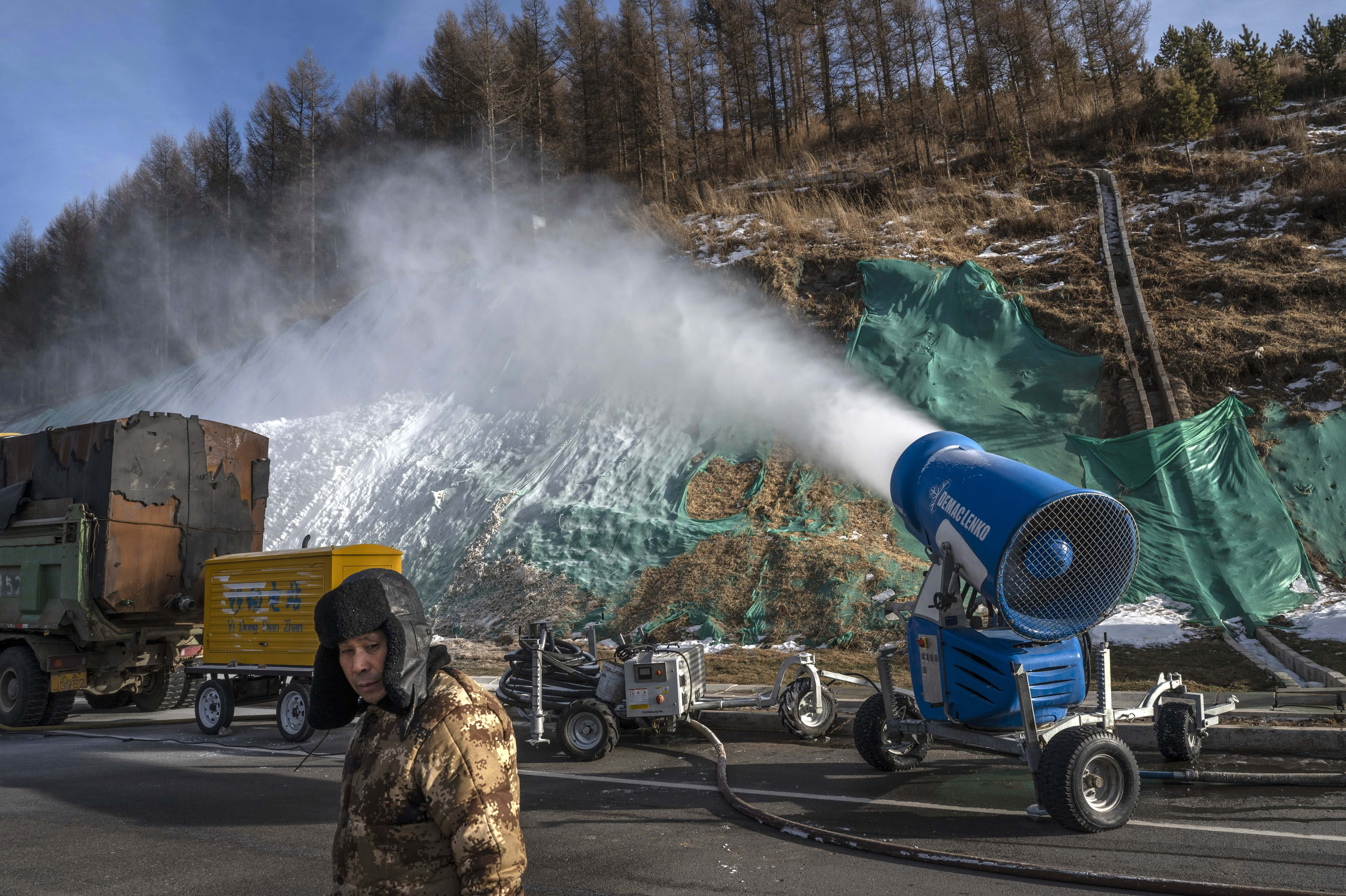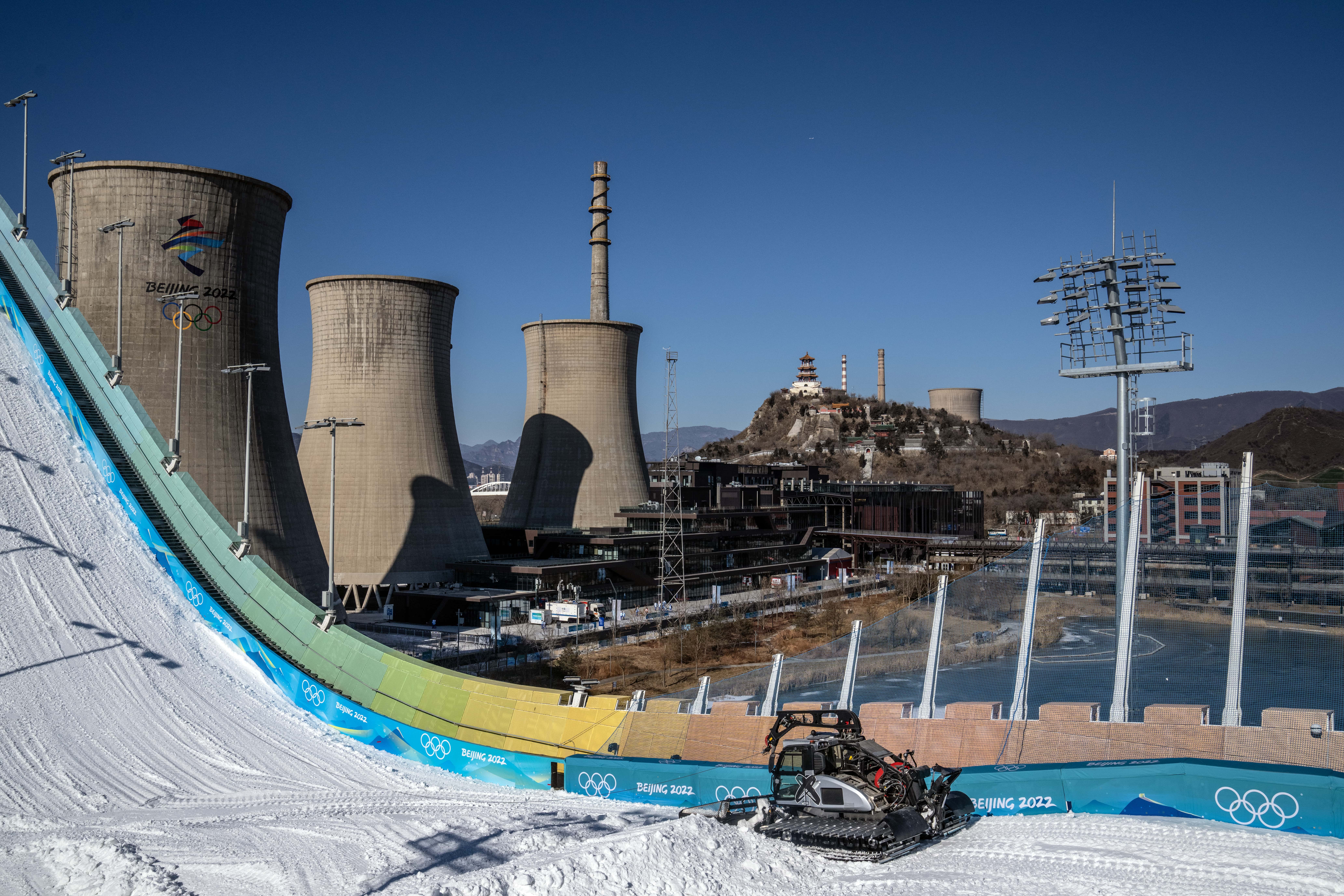China's Winter Olympics just gets worse as Rep. Eric Swalwell slams SNOWLESS avenue

Over the past several months, numerous celebrities and politicians have raised concerns about China hosting the 2022 Winter Olympics. On February 7, Rep. Eric Swalwell joined that backlash when he asked "Why are the WINTER Olympics in Beijing?!" on Twitter. The question reignited the debate on how Beijing was selected as the host city, as the controversial games are currently underway.
The Chinese government is already facing massive backlash for alleged human rights violations in Xinjiang, which have served as a backdrop to the Winter Olympics. Seen by many as a bid to change that, the Chinese athlete that lit the traditional cauldron at the opening ceremony was skier Dinigeer Yilamujiang, an Uyghur athlete. It didn't take focus away from China though after organizers were slammed for not serving hot food to visiting athletes.
RELATED ARTICLES
Winter Olympics 2022: US athletes are using BURNER PHONES in China, here's why
Sjoerd den Daas: China slammed as guards drag on-air NOS reporter away during Olympic coverage
Overall, things don't look that great for China. The host nation is being attacked on multiple fronts, putting the focus more on politics rather than the games themselves. How did we get here? If that's what you are wondering, here's the truth about how China became the venue for the 2022 Winter Olympics.

Truth behind China's selection
With the 2022 games, Beijing becomes the first city in the world to host both the Summer and Winter Olympics, a feat that would probably not have happened if not for the waning popularity of the games. As with all games, the 2022 Olympics originally received numerous bids from cities all over the world. Oslo (Norway), Stockholm (Sweden), Krakow (Poland), St Moritz (Switzerland), and Munich (Germany) were just some of the many other bidders in the initial process.
However, by the time it came to vote in 2015, the International Olympic Committee (IOC) was only left with two host bids - Beijing (China) and Almaty (Kazakhstan). So what happened? It's complex, but in a nutshell, two key factors emerged. For one, the doping scandal that erupted from the 2014 Sochi Winter Olympics put many cities off. Reportedly, as many as six cities dropped their bids.
Secondly, and perhaps most importantly, economics came into play. It cost Sochi roughly $51 billion to host the 2014 games, a price tag that most cities weren't too keen to meet. In St Moritz and Munich, public referendums on the matter showed that residents weren't keen on having the games in their town. In the end, it left the IOC with only two options, and Beijing won 44-40 in the vote.

'No snow' laments Swalwell
Back in 2014, IOC President Thomas Bach conceded that the Winter Olympics was a tough sell. "The number of candidates for winter is already very limited by geography," he lamented, acknowledging that climate change meant there were fewer and fewer options for "traditional" hosts where snow was still available. It's why since 1980 artificial snowmakers have been employed at the games.
The 2010 Winter Olympics in Vancouver and 2014 games in Sochi both extensively used artificial snow after unusually hot winters left the host cities devoid of snow. It's not something new that Beijing is doing, but simply following up on what has now become the norm. Global warming and climate change mean that snow is a rarity, even in traditionally snowy regions. It's something Rep. Swalwell didn't appear to take into account when he tweeted, "Putting aside the human rights violations, economic espionage, and censorship…there’s no snow on the damn mountains. Why are the WINTER Olympics in Beijing?!"
Putting aside the human rights violations, economic espionage, and censorship…there’s no snow on the damn mountains. Why are the WINTER Olympics in Beijing?!
— Rep. Eric Swalwell (@RepSwalwell) February 8, 2022
If global temperatures continue to rise, artificial snow will become the default option and could open up the Winter Olympics for more host cities. But there's still a question of price, and with pandemic-ravaged economies, hosting the Olympics may no longer be a priority. The future for the games is certainly up for debate, but right now, Beijing is out to prove that snow or not, it can still host the Winter Olympics. In other areas though, China is likely to find it a tough sell.










